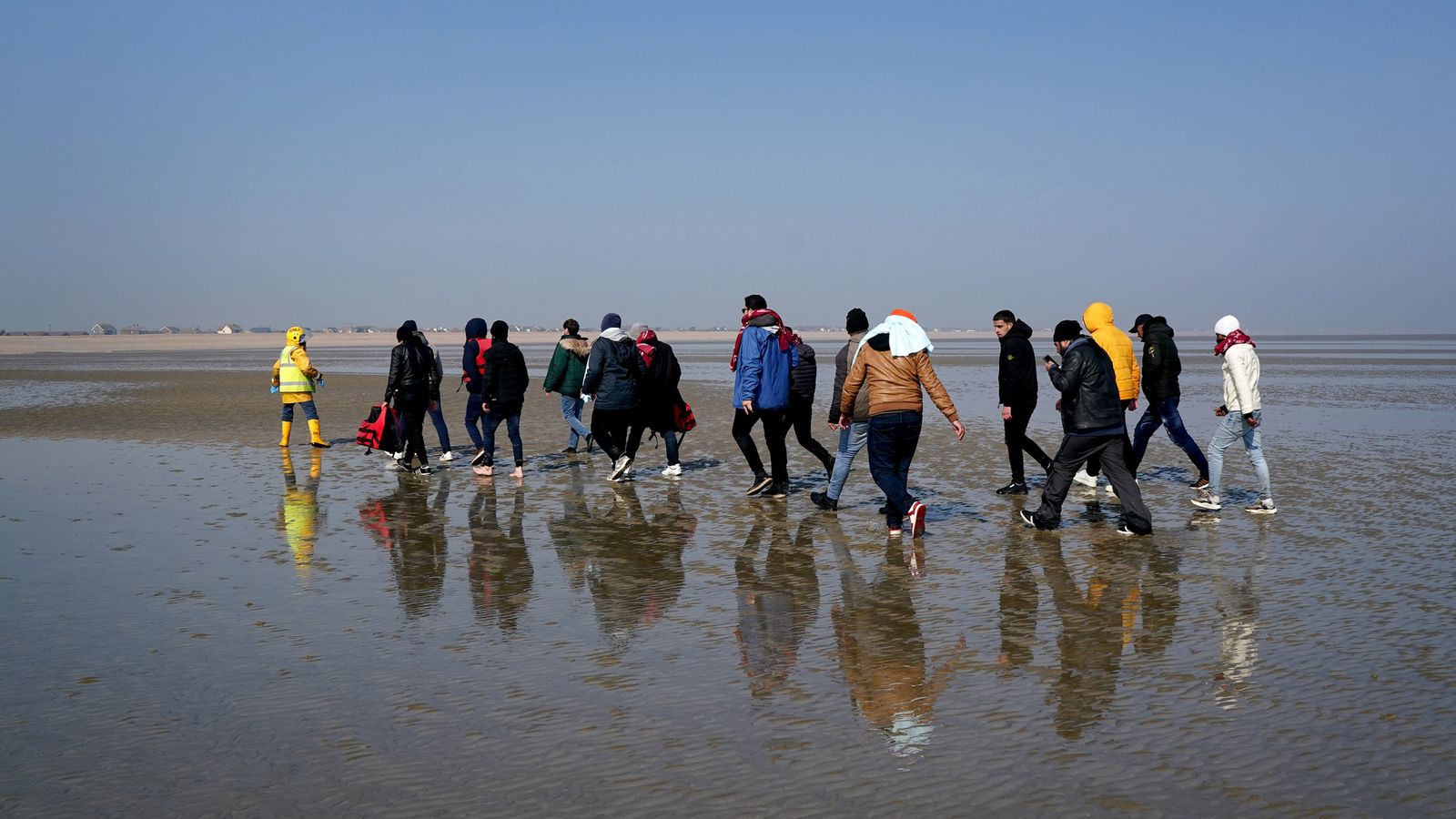Boris Johnson has defended his plan to send migrants arriving illegally in the UK thousands of miles away to Rwanda “as the morally right thing to do”.
The policy is part of the prime minister’s plan to tackle the scale dangerous Channel crossings by migrants in small boats – though he admitted there would be legal challenges and it would not happen overnight.
Mr Johnson rebuffed concerns from charities that the plan – which he said would see tens of thousands of people sent to the east African country over coming years – was “cruel and nasty”.
He said: “This is the morally right thing to do and the humane and compassionate thing to do.
“We cannot have people continuing to die at sea, paying huge sums to evil people trackers who ares simply exploiting their hopes and their ambitions.
“We need to encourage them to take the safe and legal route if they want to come to this country.”
The wider strategy will also see a previously-announced plan for the Royal Navy take over responsibility for tackling people crossing the Channel take effect from today.
Painting commissioned by army showing drones monitoring migrant boats in Channel sparks criticism
High Court rules against Home Office over data being extracted from migrants’ mobile phones
Channel crossings: More than 4,000 people cross to UK in small boats in 2022 – nearly four times the amount for same time last year
Backlash as PM reveals Rwanda plan – politics live
At a speech in Kent, the PM said that “those who tried to jump the queue or abuse our systems will find no automatic path to set them up in our country”.
He said that from today anyone caught entering the UK illegally, as well as those who have already arrived illegally from 1 January, may be relocated to Rwanda.
Mr Johnson said the government planned to end the “barbaric trade in human misery” caused by people traffickers in the Channel, and said crossings could reach 1,000 a day in a few weeks.
The plan to tackle the flow of migrants has been criticised by charities while opposition parties say it is an attempt to distract attention from the partygate affair.
Please use Chrome browser for a more accessible video player
There has also been confusion in the government’s messages about the policy, with Welsh Secretary Simon Hart apparently confirming a newspaper report that only male adults will be flown to Rwanda for processing even as the Home Office dismissed it as speculation.
Home Secretary Priti Patel will set out further details as she signs what is described as a “migration and economic development partnership” with the east African nation during a visit to the capital, Kigali.
The government is warning that the number of people making the Channel crossing could reach 1,000 a day within weeks. About 600 people arrived on Wednesday.
The Refugee Council’s chief executive Enver Solomon said: “We are appalled by the government’s cruel and nasty decision to send those seeking sanctuary in our country to Rwanda.”
He said sending migrants 6,000 miles away for processing “will do little to deter them from coming to this country, but only lead to more human suffering and chaos – at a huge expense of an estimated £1.4bn a year”.
The British Red Cross said it was “profoundly concerned” about sending “traumatised people halfway round the world”.
Mr Hart told Sky News’ Kay Burley the policy would be a “really humane step forward” even though he acknowledged that there had been claims of human rights abuses by Rwanda.
“That is true, but that doesn’t alter the fact that their reputation as far as migrants is concerned and their economic progress is phenomenal – so I don’t think we want to write this off now,” he said.
The initial cost of the scheme is estimated at £120m, Mr Hart added.
Asked whether children would be sent to Rwanda, he said: “The principle is no. This is about male economic migrants in the main.
“There is a different set of issues with women and children and refugees and asylum seekers.”
For the latter, the treatment would be “more akin to what we do at the moment, looking after and safeguarding their interests in the UK”.
Scotland’s first minister Nicola Sturgeon said it was a “despicable policy” and claimed that, as an attempt to distract from partygate, it showed “the utter moral bankruptcy of this Tory government”.
Labour said the the plan was “unworkable, unethical and extortionate”.
Shadow culture secretary Lucy Powell told Sky News the announcement “has to be taken with a big dollop of cynicism and scepticism about the timing of it and whether this is actually all about distracting from the prime minister’s own law breaking”.








